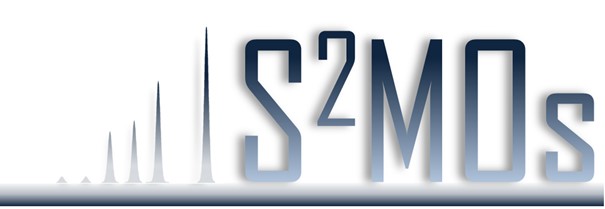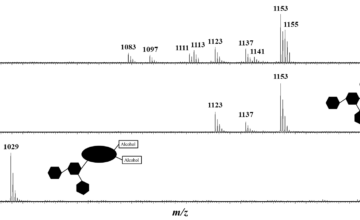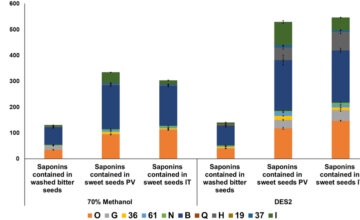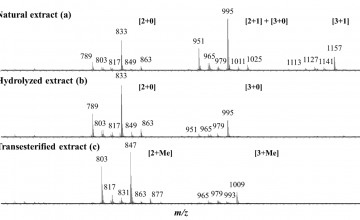Poison or Potion: Effects of Sunflower Phenolamides on Bumble Bees and Their Gut Parasite
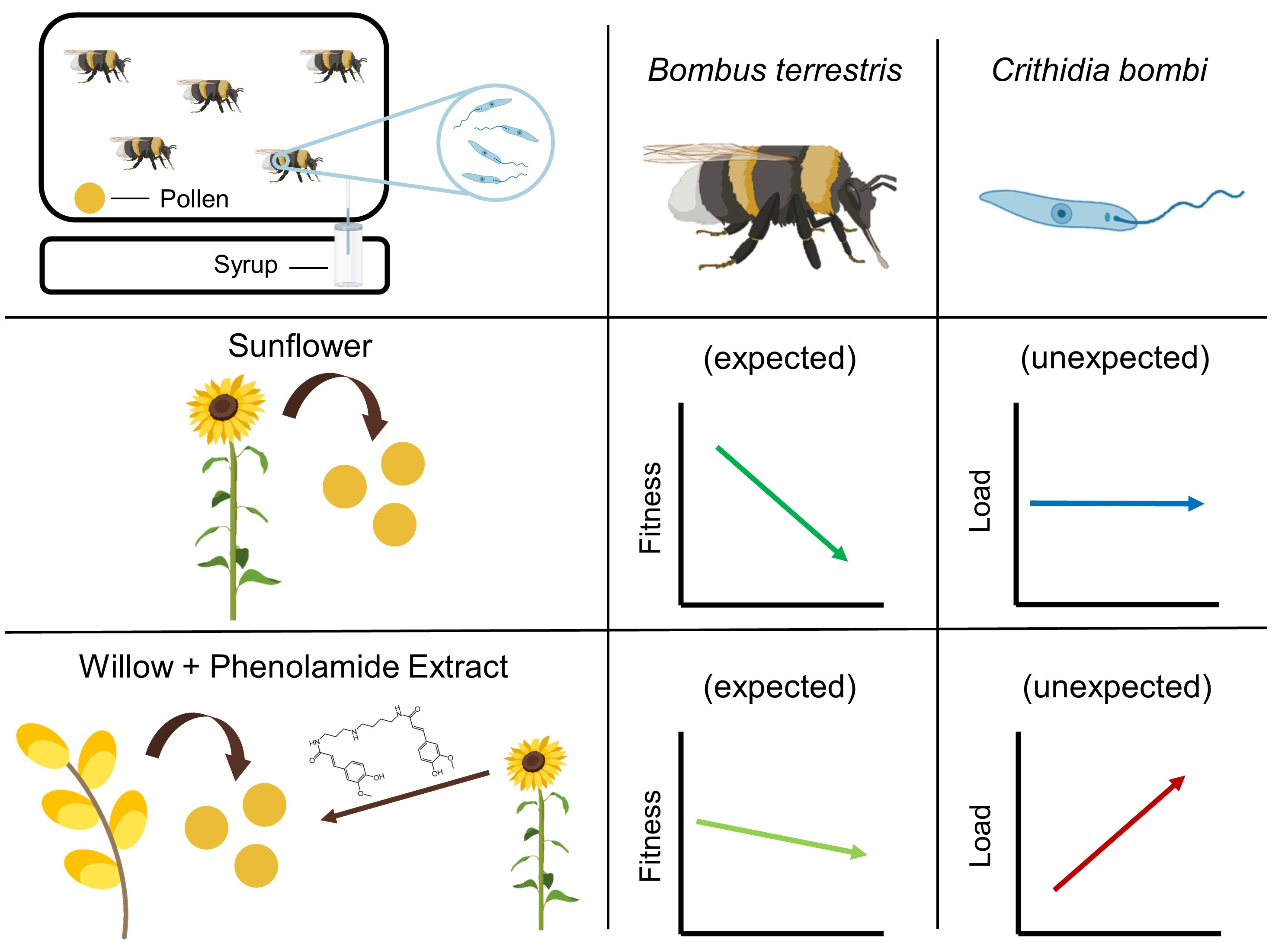
Bee declines have been reported worldwide, partly due to parasite spread induced by human activities. However, bees may forage on specific floral resources to face parasite infection. Such natural resources are comparable to ‘natural pharmacies’ and may be favoured in bee conservation strategies. Consumption of sunflower pollen, despite being detrimental for larval development, has been recently shown to reduce the load of a widespread bumble bee gut parasite in the common eastern bumble bee. Although the underlying mechanisms remain unknown, it has been suggested that sunflower phenolamides—a family of molecules found in most flowering plants—may be responsible for such a reduction in parasite load. Here, we tested the impacts of sunflower phenolamides on healthy and infected buff-tailed bumble bees. Expectedly, sunflower pollen had harmful consequences on bumble bee development but surprisingly, it did not alter parasite load. By contrast, sunflower phenolamides had milder effects on bumble bee development but unexpectedly increased parasite load. Phenolamide effects may stem from the physiological stress they induced or the gut microbial community alteration they may have triggered. Since biological models and experimental framework differ greatly in related studies tackling plant–bee–parasite interplays, we challenged the definition of medicinal effects and questioned the way to assess them in controlled conditions.

